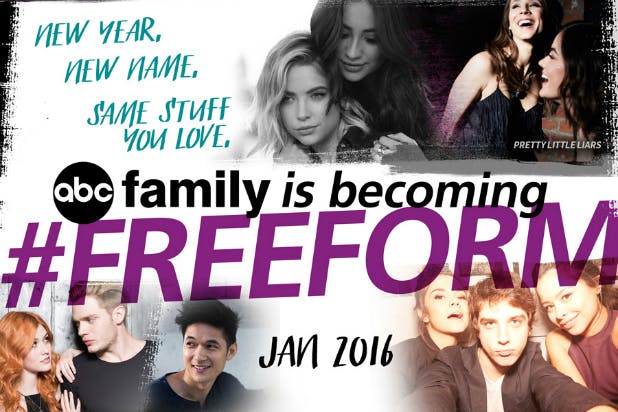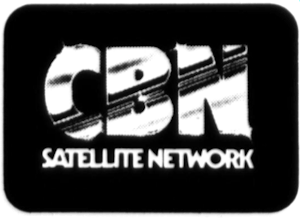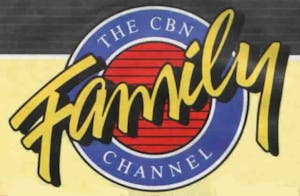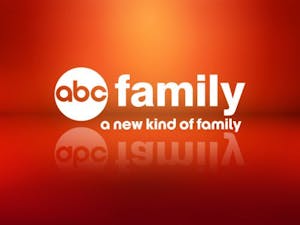I didn’t want to love ABC Family’s The Fosters. I tried to resist the show, which centers on an interracial lesbian couple, Stef Foster and Lena Adams, and their multiracial family of five kids, some of whom are foster children. (Get it?) But I couldn’t: It’s too good. New Yorker television critic Emily Nussbaum has written that the show is “understated”; “largely undidactic”; “wise, funny, and insightful”’—with diversity “baked” into the premise of the show. All of these things are true, and the show is pretty dreamy. A friend of a friend calls it “acceptance porn”: Everyone finds a place in diverse Anchor Beach, California, and in the loving arms of the Adams-Foster clan.
Lena and Stef and the kids are clearly supposed to embody what the network calls “A New Kind of Family,” one that departs from 7th Heaven’s lily-white Camden family, one that embraces, say, families of color, interracial relationships, and same-sex parents. Yet I kind of hate that I love it—partly because Stef and Lena are, respectively, a cop and a charter school principal, a shot of neoliberalism with your assimilation politics; and partly because I’ve always thought of the network as vaguely Christian: Any channel that broadcast Secret Life of the American Teenager smells of strained morality and squeaky-clean visuals to me.
And it’s because of viewers like me that the Disney-owned network (ABC is also a Disney property) has announced that as of January 16 it will be renamed Freeform. If anything, ABC Family should be catnip to me: I’m still (barely) in the network’s core demographic, people (though mostly women) ages 14-34. (The network calls us “Becomers,” because we navigate a whole host of life changes in those decades—“from your first kiss to your first kid,” they claim.)

But my older associations with ABC Family get in the way. According to network president Tom Ascheim, Deadline reported Tuesday, the motivation for the rebranding was that “core viewers understand the younger, social-media active brand while non-viewers associate it with wholesome and family-friendly programming.” This name-change marks a decisive effort to finally shed the neoconservative Christian ethos that has dogged the channel’s branding, however mildly, since Fox bought the network from Pat Robertson in 1998. Yes, that Pat Robertson. In the ABC Family constellation, the televangelist may be the Foster family’s strangest bedfellow. He has maintained a hold on the network’s identity through two sales, and, however vigorous Freeform’s rebranding, he’ll continue to lurk in the background.

Robertson founded the network, then called CBN Satellite Service, in 1977. CBN’s flagship program was The 700 Club, a five-day-a-week program already in production for 11 years; it began as a nightly religious variety show—it’s where Jim and Tammy Faye Baker got their start—but has gradually evolved into a newsmagazine style talk show. Over the next two decades, under Robertson’s ownership and his son’s direction, the network dropped most of the explicitly religious content and evolved into The Family Channel. Even then, the network struggled with its core identity. Like a weird mash-up of competitors Nick at Nite and the Game Show Network, The Family Channel broadcast wholesome syndicated series like Ozzie and Harriet and Barney Miller and tepid originals like Big Brother Jake and parenting game show (not joking) Wait ‘til You Have Kids!!

In 1998, Fox bought the network and renamed it the Fox Family Channel, moving operations from Virginia Beach to Los Angeles. Here, too, executives struggled with the network’s brand identity. Something like a low-rent Nickelodeon, Fox Family aired Big Wolf on Campus, All Dogs Go to Heaven: The Series, and syndicated tot favorite Shining Time Station. (For one weird, glorious season, the network showed reruns of Pee-Wee’s Playhouse and revived SNL character Mr. Bill on Ohh Nooo! Mr. Bill Presents.)
One thing the relaunched network could not do was cut all ties with Pat Robertson. A condition of the sale required Fox to continue airing The 700 Club. In 2001, when the Walt Disney Company acquired the floundering network for $5.3 billion, the company either could not or would not—it’s not clear which—drop The 700 Club from its schedule. Today, though the network distances itself from the show with title cards that suggest it “does not represent [the channel’s] views,” ABC Family airs The 700 Club three times a day, at 3:00 a.m., 10:00 a.m., and 11:00 p.m. An ABC Family publicist confirmed to me hat the network has no plans to take the show off the air.
With or without The 700 Club, the network has had a hard time shaking off its patina of wholesomeness. Initially, executives considered renaming the network XYZ to advertise its hipness. (ABC to XYZ. Get it?) That they ultimately didn’t has fueled rampant speculation that Disney’s hands were tied by yet another contractual obligation: a clause requiring the network to keep “Family” somewhere in the name. This apocryphal mandate has never been confirmed—in 2005, writer James B. Stewart quoted a Disney exec saying that there never such an obligation—and even now ABC executives don’t have a straight answer. An ABC Family rep confirmed to Deadline on Tuesday that there is no legal obstacle to the name-change, while Ascheim told the Los Angeles Times, “I don’t doubt that was once the case, but I know it’s no longer true.”
Since its 2001 rebirth, ABC Family has relied heavily on syndicated series, including many from ABC’s 1990s “TGIF” prime-time programming block—shows about, as it were, old families. (Since 2002, the network has also rerun ABC’s reality series The Bachelor.) For its first few years, Captain Kangaroo and Power Rangers reboots, The Scariest Places on Earth, and teen makeover show Knock First all shared the schedule.

In 2006, the network declared itself “A New Kind of Family,” and began to run racier, more teen-focused fare—programming that would have been equally at home on the CW, which launched in 2006 after the merger of UPN and the WB. The Gilmore Girls, which originally aired on the WB, became a staple of ABC Family’s lineup for nearly a decade; it was joined by other CW shows in syndication. The strategy was successful: With the debut of Greek in 2007 and The Secret Life of the American Teenager in 2008, the network finally had strong marquee programs, and the once-struggling channel was gaining viewers each year in its targeted demographic.
Even then, it’s not necessarily the case that “A New Kind of Family” was an ethos any different from the network’s competitors: Pretty Little Liars, its biggest hit,was produced for the network by Alloy Entertainment, the same company that launched the CW’s similarly glossy Gossip Girl. Though the channel was specifically targeting millennials—and had been since 2004—its brand identity was far from singular. When I spoke to a television-studies class at Chicago’s Columbia College this week, one of the students said that as a preteen and young teenager, he thought of ABC Family as “a grown-up Disney channel,” what you graduated to when you got too old for Hannah Montana. And while that makes some sense—Disney is, after all, the parent company—the brand still hasn’t been able to stand on its own.
And, as always, the residue of Christian broadcasting was hard to shake. As late as 2009, the channel defined “A New Kind of Family” as “A New Kind of Strong” and “A New Kind of Faithful” in a spot starring the cast of The Secret Life of the American Teenager. (Teen pregnancy was a regular feature in the show—which managed to be both puritanical and obsessed with sex—but, of course, the characters never chose abortion.) It’s only since the 2011 debut of Switched at Birth, I’d argue, that “A New Kind of Family” came to mean what it implies today: families that represent the full spectrum of diverse identities, less superficially wholesome and more meaningfully honest. Switched at Birth, of course, has a soapy premise: It’s about two teenagers ... switched at birth ... and the very different families they grew up in. That’s not all that radical, but it’s also a show in which disability figures heavily. One of the girls, Daphne, is deaf and uses American Sign Language (ASL) to communicate. Switched at Birth is also one of the first mainstream shows to feature deaf and hard-of-hearing characters as series leads and regulars.
From there, we do start to see something like “A New Kind of Family.” Switched at Birth launched itself squarely into the abortion debate with a character’s Down syndrome pregnancy this season. The Fosters, of course, covers more capital-I issues than ABC’s entire Afterschool Special run and represents a full spectrum of racial, sexual, gender, and class identities. The comedy Baby Daddy, which debuted in 2012, is about a twenty-something man who has to raise a child he conceived in a one-night stand—with the help of his brother, his friends, and his mom. These days, the slogan’s winky wordplay reads more like it’s supposed to: this is not your grandma’s family programming. (Though you might have a cool grandma, I don’t know.)
And that’s what the network hopes to emphasize with its new name. But I wonder whether the effort will lead to the cohesive messaging executives are after. Though Deadline reports that the network arrived at “Freeform” after considering 3,000 other possibilities, the college students I talked with pointed out a problem: Freeform sounds very... freeform. It could mean pretty much anything. For a network that’s struggled to communicate a coherent brand for decades, that may not be such an asset after all. On the other hand, they probably know more than I do: after all, I’ve had to accept my status as a Becomer and embrace my love of The Fosters. If that’s not marketing magic, I don’t know what is.
